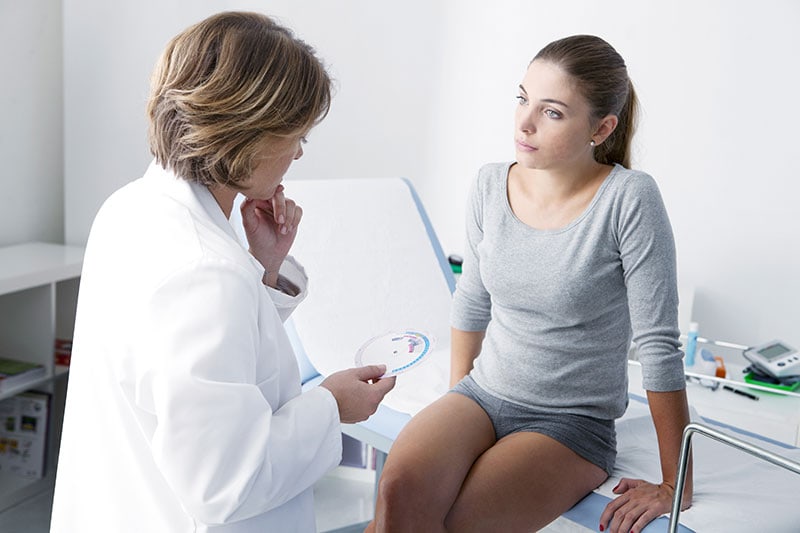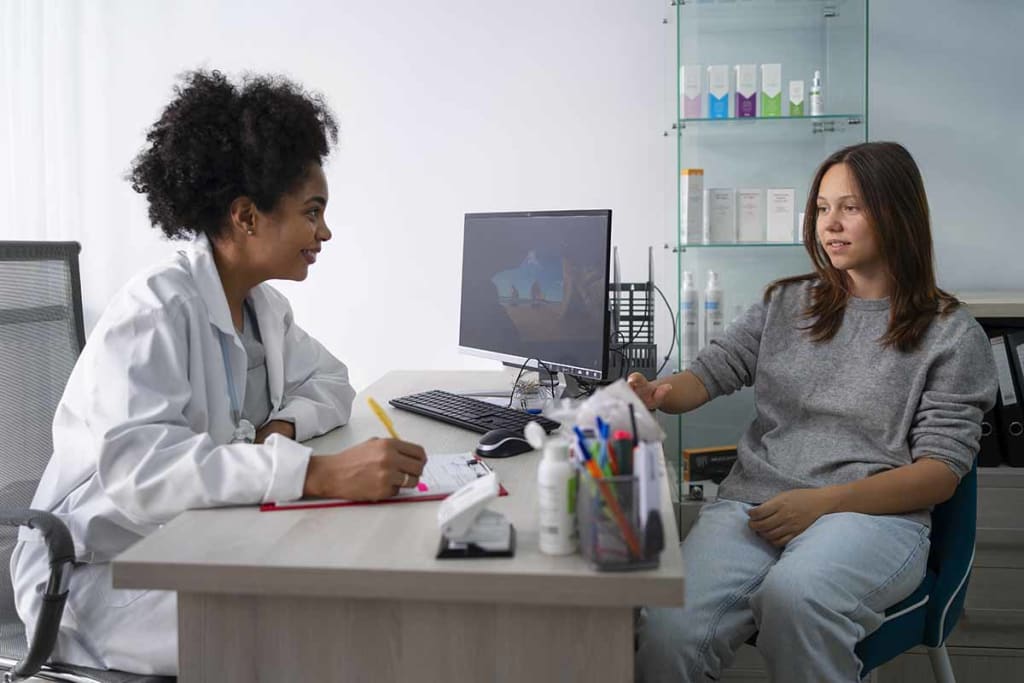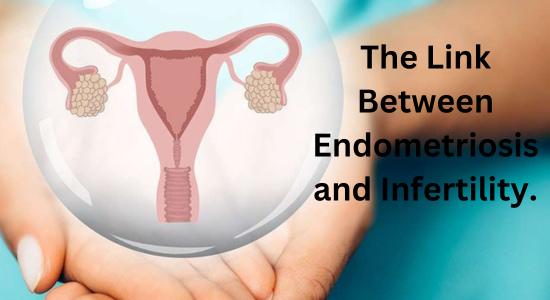How to Prepare for Your First Gynecologist Visit
Visiting a gynecologist for the first time can feel overwhelming, but with the right preparation and mindset, it can be an empowering and valuable experience. Whether you are seeking advice on menstrual health, contraception, sexual health, or general reproductive wellness, a gynecologist can provide expert guidance tailored to your needs. This guide will walk you through everything you need to know to feel confident and prepared for your first visit.
1. Understanding Why You Need to Visit a Gynecologist
The American College of Obstetricians and Gynecologists (ACOG) recommends that individuals visit a gynecologist for the first time between the ages of 13 and 15 or when they become sexually active. Common reasons for a first visit include:
- Routine Checkup: To establish a baseline for your reproductive health.
- Menstrual Issues: Addressing irregular, painful, or heavy periods.
- Sexual Health: Discussing contraception, sexually transmitted infections (STIs), and safe sexual practices.
- Concerns About Reproductive Health: Issues like pelvic pain, abnormal discharge, or other symptoms.
Understanding your purpose for the visit can help you focus on your specific questions and concerns.
2. Choosing the Right Gynecologist

Finding a gynecologist you feel comfortable with is essential. Consider the following factors:
- Personal Preference: Some people prefer a gynecologist of a specific gender or age.
- Specialization: Look for someone who specializes in areas relevant to your needs, such as adolescent gynecology, fertility, or sexual health.
- Location and Availability: Choose a clinic that is conveniently located and fits your schedule.
- Recommendations: Ask friends, family, or your primary care physician for recommendations.
Researching and reading reviews can also help you make an informed decision.
3. Scheduling the Appointment

When booking your appointment, consider:
- Timing: Avoid scheduling your visit during your menstrual period unless your concern is period-related. Mid-cycle is often ideal.
- Insurance: Confirm that the clinic accepts your health insurance and understand what services are covered.
- Preparation Questions: Ask the receptionist if there are any specific instructions to follow before the visit, such as avoiding sexual activity or douching.
4. Preparing Questions and Concerns
Write down a list of topics you’d like to discuss. This could include:
- Menstrual cycle concerns.
- Birth control options.
- Questions about sexual health or STIs.
- Concerns about vaginal health, such as itching, odor, or discharge.
- Plans for future pregnancy or fertility preservation.
Having your questions prepared can ensure you don’t forget to address important issues during the appointment.
5. Gathering Medical Information

Before your visit, compile relevant medical details, including:
- Menstrual History: The start date of your last period, cycle length, and any irregularities.
- Medical History: Previous surgeries, chronic conditions, and medications you’re taking.
- Sexual History: Be prepared to discuss your sexual activity and any related concerns.
- Family History: Information about hereditary conditions, such as breast or ovarian cancer.
Providing accurate information helps your gynecologist assess your health comprehensively.
6. What to Expect During the Visit
Here’s what typically happens during a gynecological visit:
- Medical History Discussion: The gynecologist will review your medical and menstrual history.
- General Physical Exam: They might check your weight, blood pressure, and overall health.
- Breast Exam: For patients of a certain age, the gynecologist may check for lumps or abnormalities.
- Pelvic Exam: If indicated, the doctor might perform a pelvic exam to check for abnormalities in the reproductive organs. This may include:
- External Examination: To check for signs of infection or irritation.
- Speculum Examination: A tool is used to view the vaginal walls and cervix.
- Pap Smear (if necessary): A sample of cervical cells is collected to screen for cervical cancer.
- Bimanual Exam: The doctor checks the uterus and ovaries by pressing on the abdomen.
The pelvic exam is generally not required for younger patients unless they have specific concerns.
7. Coping With Nervousness

It’s normal to feel nervous about your first gynecologist visit. Here are some strategies to help:
- Bring a Support Person: Some clinics allow you to bring a friend or family member for support.
- Practice Relaxation Techniques: Deep breathing or meditation can help ease anxiety.
- Communicate: Let your gynecologist know if you’re feeling nervous. They’re trained to help you feel comfortable.
Remember, gynecologists are professionals who aim to provide compassionate care.
8. Being Honest and Open
Honesty is critical during your appointment. Your gynecologist is there to help, not judge. Share accurate information about:
- Sexual activity.
- Symptoms you’re experiencing.
- Lifestyle factors, such as smoking or alcohol use.
The more transparent you are, the better care you’ll receive.
9. Understanding Follow-Up Care
After your visit, your gynecologist may:
- Provide prescriptions for medications or birth control.
- Recommend lifestyle changes or additional tests.
- Schedule follow-up appointments to monitor your health.
Take notes during the visit or ask for a summary to ensure you understand the next steps.
10. Knowing Your Rights
As a patient, you have the right to:
- Ask Questions: Don’t hesitate to seek clarification about procedures or recommendations.
- Privacy: Your medical information is confidential.
- Switch Providers: If you don’t feel comfortable with your gynecologist, it’s okay to seek a different provider.
Empower yourself by advocating for your health and comfort.
11. Tips for a Positive Experience
- Wear Comfortable Clothing: Choose something easy to change out of.
- Avoid Certain Products: Skip vaginal sprays, douches, or tampons 24 hours before your visit.
- Stay Hydrated: Drinking water can make urine samples easier to provide.
Approaching the appointment with a calm and prepared mindset can make the experience smoother.
12. Frequently Asked Questions
Q: Will it hurt? A: Most procedures, like a pelvic exam or Pap smear, might feel uncomfortable but shouldn’t be painful. Communicate with your doctor if you experience discomfort.
Q: Do I need a pelvic exam? A: Not all first-time visits require a pelvic exam. It depends on your age, symptoms, and sexual activity.
Q: How often should I visit the gynecologist? A: ACOG recommends annual visits for preventive care and screenings.
Also read about: The Role of Protein in Women’s Diets.
Conclusion
Gynecologist visit is an essential step in taking charge of your reproductive and overall health. While it’s natural to feel anxious or uncertain, preparation and a positive mindset can make the experience both empowering and informative. By choosing a trusted provider, preparing your medical history, asking questions, and understanding what to expect, you’ll be better equipped to make the most of the appointment. Remember, your gynecologist is there to support you, answer your questions, and provide the care you deserve. Prioritizing your health is a powerful act of self-care that lays the foundation for a healthier future.
[Link to a related article “What to expect during your first gynecological visit”]


Pingback: How to Choose the Right Birth Control Method for You.